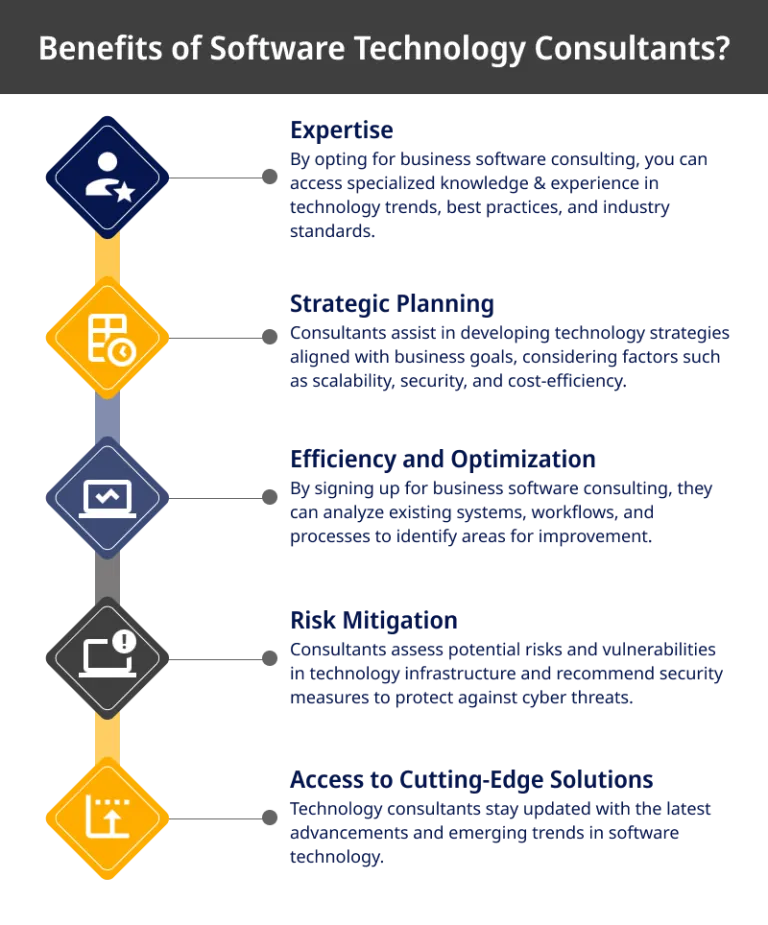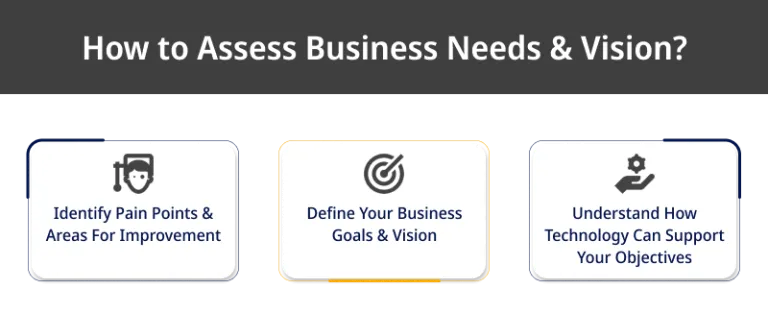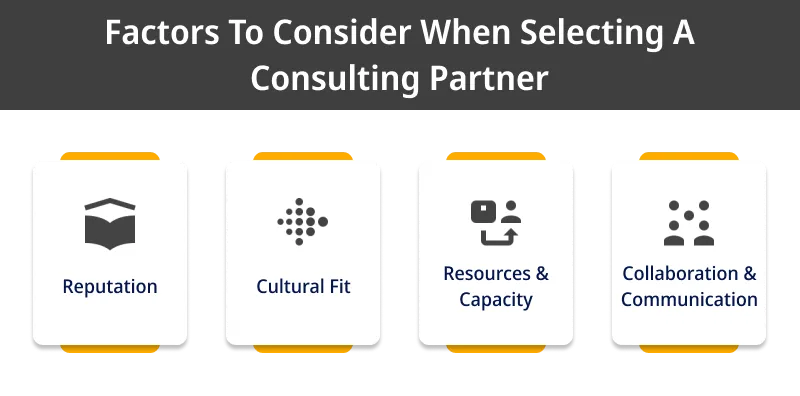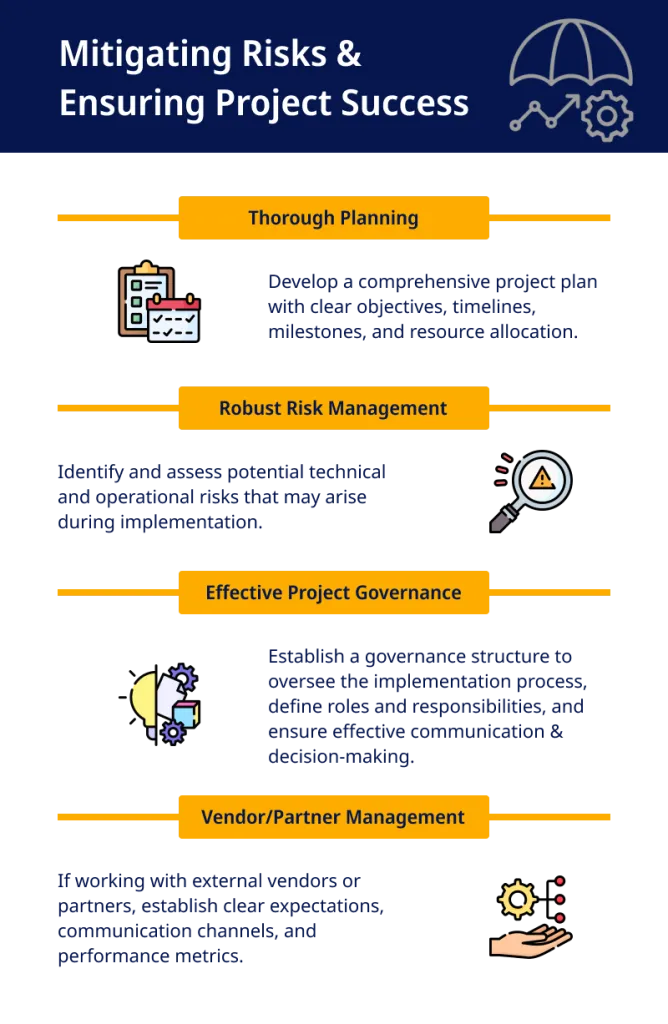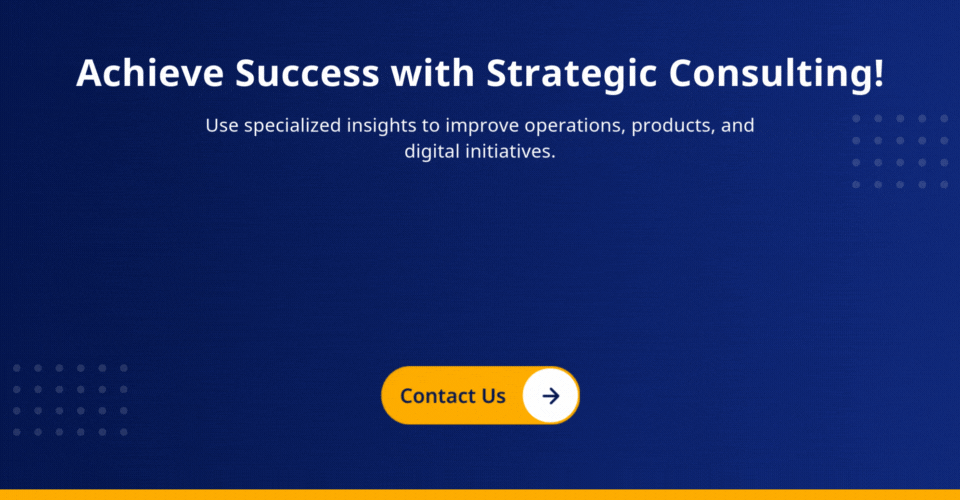Is your business stuck in a state of stagnation, showing no signs of impressive growth in the foreseeable future? If so, it’s high time to consider the transformative potential of software technology consulting. By partnering with experts who understand the latest software trends and solutions, you can scale your business and bring your visions to life.
The Grand View Research stated that the global software consulting market, valued at USD 218.60 billion in 2020, is predicted to grow at a CAGR of 12.0% from 2021 to 2028.
This blog explores the importance of software technology consulting and how it can empower your business to navigate the complexities of technology and drive its strategic objectives.
Understanding Software Technology Consulting
Software technology consulting is the practice of providing expert advice & guidance to businesses on leveraging advanced technology solutions to achieve their strategic objective.
It comprises assessing, planning, implementing, and managing software and related technologies within an organization.
Consultants in this field possess deep knowledge & expertise in various technologies and industries, enabling them to analyze existing systems, identify gaps, and recommend effective solutions.
To help businesses with software consulting, they often provide custom software development consultants who better understand their requirements.
Why Hire Software Technology Consultants?
Hiring custom software development consultants helps in numerous ways as they bring in the following benefits:
- Expertise: With the experts of business software consulting, you can access specialized knowledge & experience in technology trends, best practices, and industry standards. They can provide valuable insights and recommendations tailored to a business’s needs.
- Strategic Planning: Consultants assist in developing technology strategies aligned with business goals, considering factors such as scalability, security, and cost-efficiency. This helps organizations make informed decisions and avoid costly mistakes.
- Efficiency and Optimization: Business software consulting experts can analyze existing systems, workflows, and processes to identify areas for improvement. They recommend solutions to enhance operational efficiency, streamline processes, and automate tasks, leading to cost savings and increased productivity.
- Risk Mitigation: Consultants assess potential risks and vulnerabilities in technology infrastructure and recommend security measures to protect against cyber threats. They also ensure compliance with industry regulations, minimizing legal and reputational risks.
- Access to Cutting-Edge Solutions: Software technology consultants stay updated with the latest advancements and rising trends in the field. They can recommend innovative solutions and help organizations leverage new technologies to earn a competitive edge.
Get free consultation and let us know your project idea to turn it into an amazing digital product.
Role of Consultants in Aligning Technology with Business Objectives
Software technology consultants play a crucial role in aligning technology with business objectives. They can help with the following:
1. Conducting Needs Assessment: Consultants collaborate with key stakeholders to understand your company’s goals, challenges, and requirements. They analyze existing systems and workflows to identify gaps and opportunities for improvement.
2. Developing Technology Roadmaps: Based on your business objectives, consultants create technology roadmaps that outline the recommended solutions, implementation timelines, and expected outcomes. These roadmaps provide a strategic framework for technology adoption.
3. Selecting & Implementing Solutions: Consultants evaluate available software options and assist in choosing the most suitable solutions for the organization’s needs. They oversee the implementation process, ensuring seamless integration and minimal disruption to operations.
4. Monitoring & Optimizing: They continuously monitor the performance of implemented solutions, gathering data and feedback to evaluate their effectiveness. They provide ongoing support, troubleshooting, and optimization to ensure the technology aligns with evolving business requirements.
By A Guide To Software Development Outsourcing Trends, you can align technology with its strategic objectives, optimize processes, mitigate risks, and unlock the full potential of software solutions.
Also read: Top IT Consulting Companies To Seek For Business Transformation
Begin With Assessing Your Business Needs & Vision
When assessing business needs, it is crucial to evaluate the current state of your company. It involves a comprehensive analysis of various aspects, including operations, finances, market position, and customer base.
By understanding the existing strengths and weaknesses, businesses can identify growth opportunities and areas for improvement.
Understanding how technology can support your objectives is key to aligning your technology initiatives with your overall business strategy.
-
Identifying Pain Points & Areas for Improvement
Identify pain points or challenges within your current technology setup that hinder productivity, efficiency, or growth. These pain points could include outdated software, manual processes that can be automated, lack of integration between systems, or security vulnerabilities.
Pinpointing these areas for improvement will help you prioritize technology initiatives.
-
Defining Your Business Goals & Vision
Clearly define your business goals and vision. What do you want to complete in the short and long term?
Are you aspiring to expand into new markets, enhance customer experience, improve operational efficiency, or increase profitability?
You can better align your technology initiatives with your overarching strategic objectives by articulating your business goals.
-
Understanding How Technology Can Support Your Objectives
Analyze how technology can support and enable the achievement of your business goals. Consider the potential of emerging technologies such as artificial intelligence, cloud computing, data analytics, or the Internet of Things (IoT) in addressing your specific needs.
Identify how technology can enhance your processes, drive innovation, enable better decision-making, or improve customer engagement.
Considering these points, you can lay a solid foundation for developing an effective technology strategy. This process will help you align your technology initiatives with your business needs and ensure that your technology investments contribute to the growth and success of your organization.
Get free consultation and let us know your project idea to turn it into an amazing digital product.
Select the Right Consulting Partner For Your Project
The success of your technology initiative depends highly on selecting the right business software consulting partner. When choosing a consulting firm, evaluate their expertise and experience, understand the types of consulting services they offer, consider relevant factors, and look for case studies highlighting successful partnerships.
Evaluating the expertise & experience of business software consulting firms
- Assess the expertise & experience of business software consulting firms in the specific areas that align with your technology needs.
- Consider their track record, industry experience, and depth of knowledge in relevant technologies.
- Look for certifications, qualifications, and specialized skills that demonstrate their proficiency in addressing your business challenges.
Understanding the different types of consulting services available
- Business software consulting firms may offer various services, including strategic planning, technology assessment, software implementation, project management, and change management.
- Determine the specific business software consulting services that align with your goals and ensure the firm has a strong capability in those areas.
- Consider whether they provide end-to-end solutions or specialize in specific stages of the consulting process.
Here are some critical factors to contemplate when selecting a business software consulting partner for your project:
- Reputation: Research the reputation of the business software consulting firm in the industry. Look for client testimonials, reviews, and feedback to gain insights into their reputation and customer satisfaction.
- Cultural Fit: Consider the cultural fit between your organization and the business software consulting firm. Assess whether their values, work style, and communication approach align with your company’s culture.
- Resources & Capacity: Evaluate the firm’s capacity to handle your project effectively. Ensure they have the manpower, expertise, and technology infrastructure to support your needs.
- Collaboration & Communication: Effective collaboration and communication are essential for a successful partnership. Assess the firm’s ability to listen to your needs, provide clear communication channels, and foster a collaborative working relationship.
Also Read: How to Manage Risks in The Software Development Lifecycle
Scale Your Business by Leveraging the Latest Technology
By exploring emerging technologies, implementing solutions effectively, and maximizing return on investment (ROI), businesses can unlock their full potential and achieve sustainable success.
By leveraging technology, businesses can streamline operations, expand their reach, and deliver superior customer experiences. It also enables data-driven decision-making, facilitates innovation, and supports agile business strategies.
Exploring Emerging Technologies and Their Potential Applications
Technologies like Machine Learning (ML), Artificial Intelligence (AI), Blockchain, the Internet of Things (IoT), and Cloud Computing offer transformative capabilities. Exploring emerging technologies is essential to stay ahead of the curve.
They can be applied across various business functions, including marketing, operations, customer service, supply chain management, and data analytics.
Understanding the potential applications of these technologies empowers businesses to identify opportunities for growth and innovation.
Strategies for Implementing Technology Solutions Effectively
Effective implementation of technology solutions is critical for maximizing their benefits. Businesses should develop a comprehensive strategy aligning technology initiatives with their objectives.
This involves gathering detailed requirements, selecting the right solutions, ensuring proper integration, and planning for change management.
Adequate training and support for employees are also essential to facilitate the smooth adoption and utilization of technology solutions.
Maximizing ROI Through Smart Technology Investments
It demands careful planning and evaluation to maximize ROI on technology investments. Businesses should assess technology solutions’ potential impact and value before investing.
Conducting cost-benefit analyses, considering long-term scalability, and assessing the alignment with business goals is crucial.
Regular monitoring and evaluation of technology initiatives are necessary to identify areas for optimization and ensure that the desired ROI is achieved.
By leveraging technology effectively, businesses can enhance their competitiveness, expand their capabilities, and achieve sustainable growth.
Exploring emerging technologies, implementing solutions strategically, and ensuring a strong focus on maximizing ROI are crucial.
By doing so, businesses can place themselves for success in the digital era and seize the opportunities presented by evolving market dynamics.
Get free consultation and let us know your project idea to turn it into an amazing digital product.
How to Overcome The Challenges & Risks
Implementing technology solutions can be accompanied by various challenges and risks.
By proactively addressing these challenges, mitigating risks, and adopting effective change management and stakeholder engagement strategies, businesses can increase the likelihood of project success.
Common Challenges Encountered During Technology Implementation
During technology implementation, businesses may face several common challenges, including:
- Resistance to change: Employees may resist adopting new technologies due to fear, lack of understanding, or concerns about job security. Overcoming resistance requires effective change management and communication.
- Integration complexities: Integrating new technology with existing systems and infrastructure can be complex and challenging. Planning integration carefully, ensuring compatibility, and addressing technical hurdles are crucial.
- Budget constraints: Limited budgets can pose challenges in implementing technology solutions. Businesses must prioritize investments, seek cost-effective options, and explore potential funding sources.
- Skills & talent gaps: Finding skilled resources or training existing employees to adapt to new technologies can be challenging. Identifying skill gaps and providing adequate training and support are crucial for successful implementation.
Also Read: Leveraging Automation to Enhance QA Efficiency
Mitigating Risks & Ensuring Project Success
To mitigate risks and ensure project success, software testing consulting services can ensure efficiency. Also, if you have an in-house team, the following strategies can lead your project to success:
- Thorough planning: Develop a comprehensive project plan with clear objectives, timelines, milestones, and resource allocation. Anticipate potential risks and devise contingency plans.
- Robust risk management: Identify and assess potential technical and operational risks that may arise during implementation. Develop mitigation strategies to address these risks and establish monitoring mechanisms.
- Effective project governance: Establish a governance structure to oversee the implementation process, define roles and responsibilities, and ensure effective communication and decision-making.
- Vendor/partner management: If working with external vendors or partners, establish clear expectations, communication channels, and performance metrics. Regularly assess their progress and address any issues promptly.
Effective Change Management & Stakeholder Engagement
Change management is crucial for successful technology implementation. Businesses should:
- Communicate the Vision: Clearly communicate the benefits and rationale behind the technology implementation to stakeholders. Create a shared understanding of the vision and its impact on the organization.
- Engage Stakeholders: Involve key stakeholders early in the process, seeking their input and addressing their concerns. Encourage open dialogue and ensure their active participation throughout the implementation journey.
- Training & Support: Offer comprehensive training programs to equip employees with the skills and knowledge required to embrace the new technology. Provide ongoing support and address any challenges or issues promptly.
- Monitor & evaluate: Continuously monitor the implementation progress, gather feedback, and assess the effectiveness of the technology solution. Make adjustments as necessary to ensure alignment with business objectives.
By proactively addressing challenges, mitigating risks, and adopting effective change management and stakeholder engagement strategies, businesses can overcome obstacles and increase the chances of successful technology implementation.
Also, there are many companies offering software testing consulting services within and outside the country.
This paves the way for maximizing the benefits of technology solutions and achieving desired outcomes.
Also read: IT Consulting Services That Are Changing the Game
Conclusion
Businesses can only survive with technology; the same applies to software technology consulting. With the help from the right custom software development consultant, you can scale your business to meet your vision and bring it to life.
A consultant’s experience and expertise will allow them to optimize your IT infrastructure, build efficiencies into your processes, and develop custom software solutions that solve specific challenges in your business.
As a result of these efforts, you’ll be able to grow more rapidly than ever before while maintaining control of your operations.
If this sounds like something you’d like to explore further, contact us today for a consultation!

